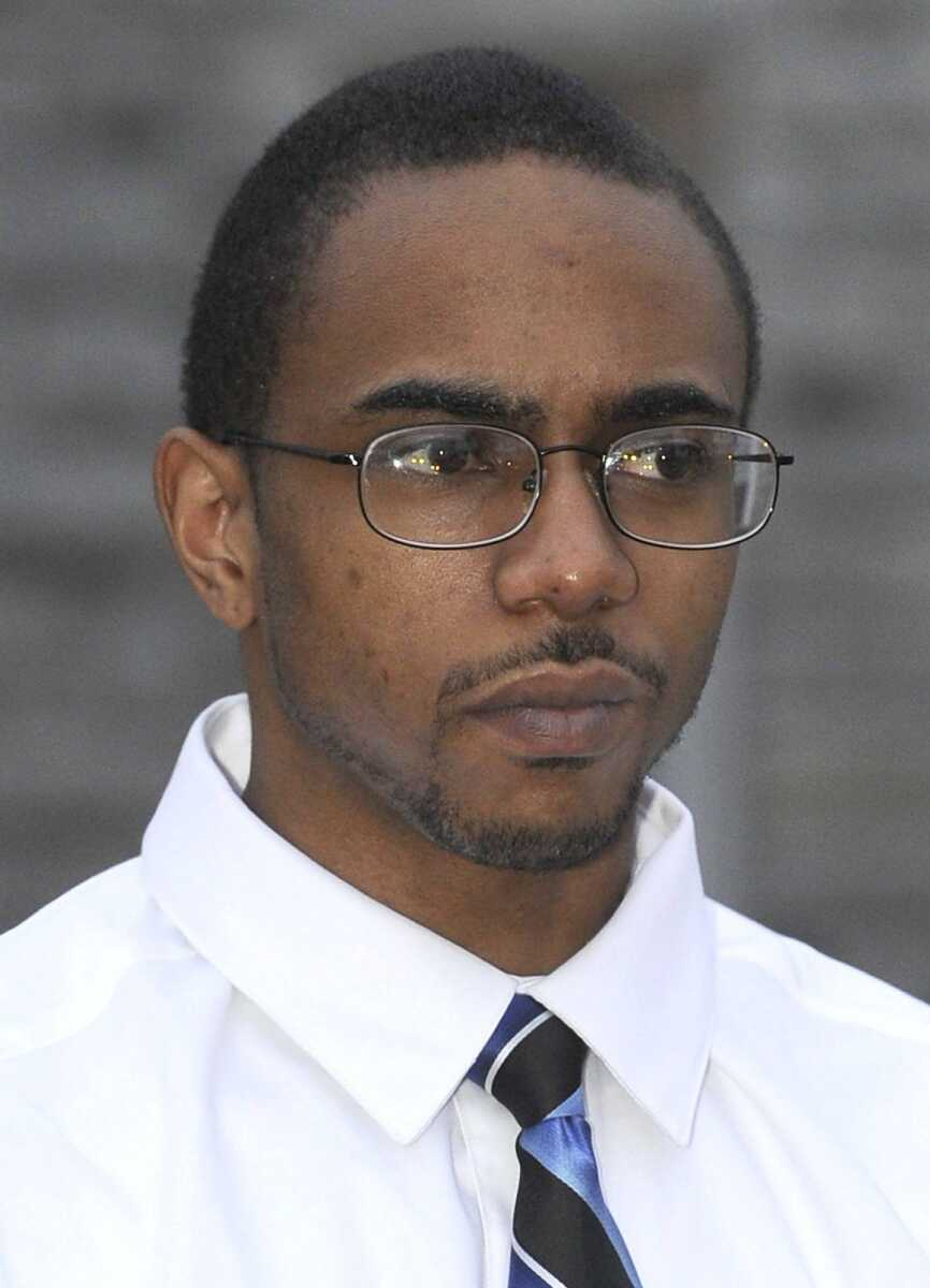Bell seeks new trial after murder conviction
Kenneth Bell's lawyers are asking for another day in court. A jury convicted the Cape Girardeau man last month of two counts of first-degree murder and one count of armed criminal action for the Feb. 7, 2013, shooting deaths of Misty Cole and Shannon James in their apartment at 401 S. Pacific St...
Kenneth Bell's lawyers are asking for another day in court.
A jury convicted the Cape Girardeau man last month of two counts of first-degree murder and one count of armed criminal action for the Feb. 7, 2013, shooting deaths of Misty Cole and Shannon James in their apartment at 401 S. Pacific St.
Bell's public defenders, Cynthia Dryden and Beth Kerry, filed an amended motion Wednesday for acquittal or new trial, citing 29 instances in which they claim the trial court erred in denying various motions and objections during the course of the proceedings.
They contend the court erred by:
- Denying a defense motion to suppress statements Bell made to police in the wake of the shooting. Bell initially refused to answer questions, invoking his right to a lawyer multiple times, but later waived his Miranda rights and talked to police after an officer suggested he needed to "soften the jurors" in the wake of a "ruthless" killing.
- Denying a defense motion for a mistrial after assistant prosecuting attorney Angel Woodruff objected to part of Kerry's closing argument. As Kerry described Bell's fear of James, Woodruff objected, saying the court had not given the jury a self-defense instruction. At the bench, Bell's lawyers moved for a mistrial, which Circuit Judge Benjamin Lewis denied, sustaining Woodruff's objection and saying, "I don't want the jury to send me a note asking about self-defense." Lewis' comment -- which could be heard in the gallery -- and Woodruff's objection raised an issue that "should have remained outside the scope of the jury's decision process," Dryden and Kerry argued.
- Overruling objections to Woodruff's statements during jury selection, including references to her own background as a longtime resident of Cape Girardeau County and her familiarity with some of the officers in the case, which Dryden and Kerry characterized as "an attempt by the state to ingratiate herself to the jurors," and references to CSI, which is a fictional television show about forensic evidence.
- Denying motions to exclude evidence that had no legal connection to the case, including cocaine found in Bell's pocket after his arrest and a digital scale found in his apartment.
- Allowing the jury to view -- sometimes for extended periods of time -- graphic crime-scene and autopsy photographs, which Dryden and Kerry argue sought to "inflame the passions of the jury" and influence jurors to base decisions on emotion rather than law.
- Admitting testimony from several police officers, including one who was not qualified to determine how the shootings occurred; one who repeated testimony from an eyewitness who already had testified; one who testified about how family members responded to being notified of James and Cole's deaths; and one who described what was on a videotape immediately before it was shown, which Dryden and Kerry contend was "cumulative, self-serving and improper bolstering" of the evidence.
- Overruling defense objections to several statements Woodruff made in her closing arguments concerning evidence and applicable laws in the case, which Dryden and Kerry argue were incorrect.
- Failing to include instructions for the jury that would have allowed jurors to consider self-defense or to find Bell guilty of manslaughter rather than murder.
In convicting Bell, jurors rejected his lawyers' attempts to portray him as a terrified man who shot the couple in a panic after James threatened him on a sidewalk behind the apartment building where both men lived.
epriddy@semissourian.com
388-3642
Pertinent address:
401 S. Pacific St., Cape Girardeau, MO
Connect with the Southeast Missourian Newsroom:
For corrections to this story or other insights for the editor, click here. To submit a letter to the editor, click here. To learn about the Southeast Missourian’s AI Policy, click here.









